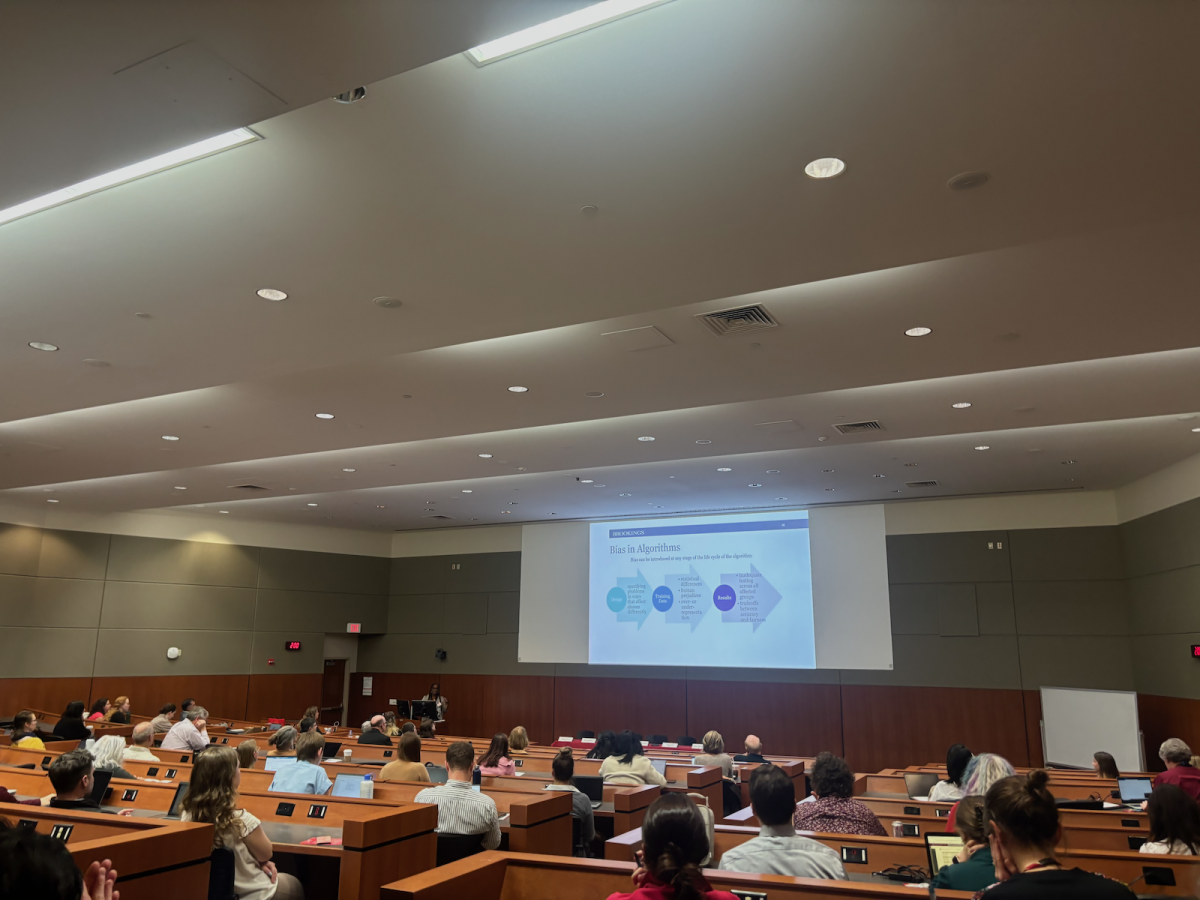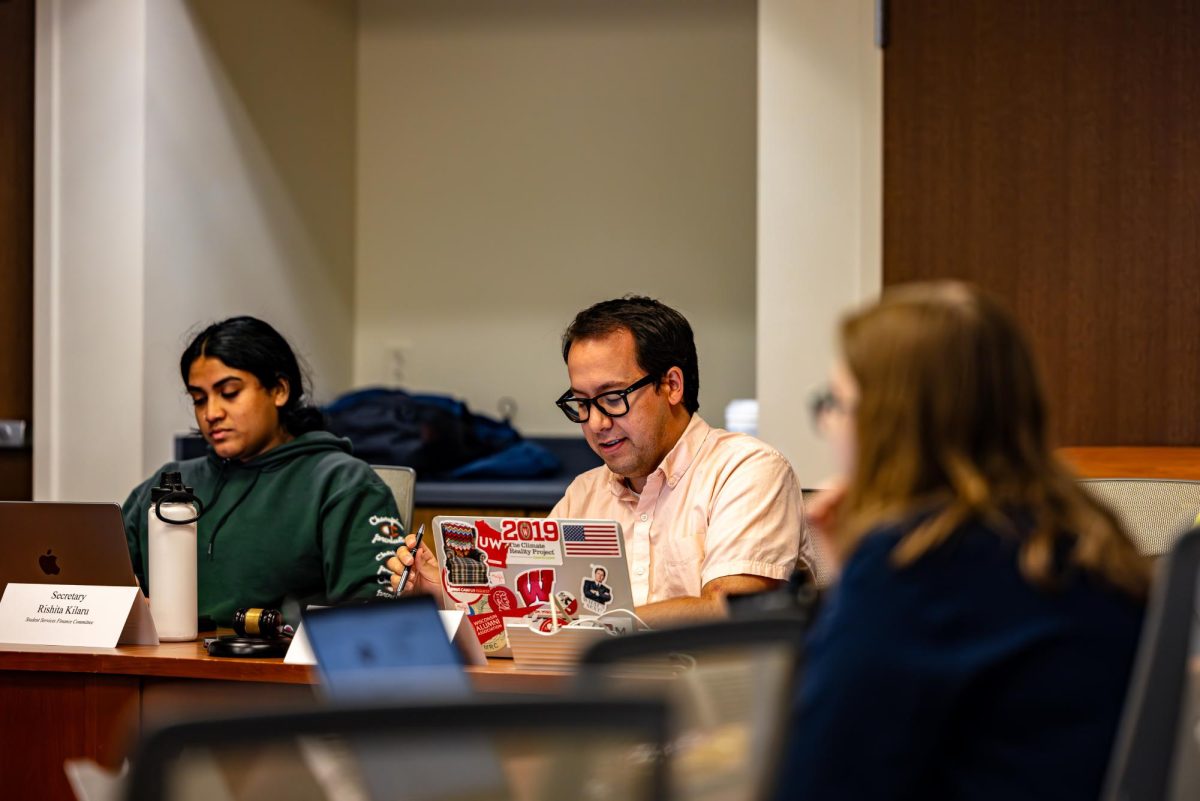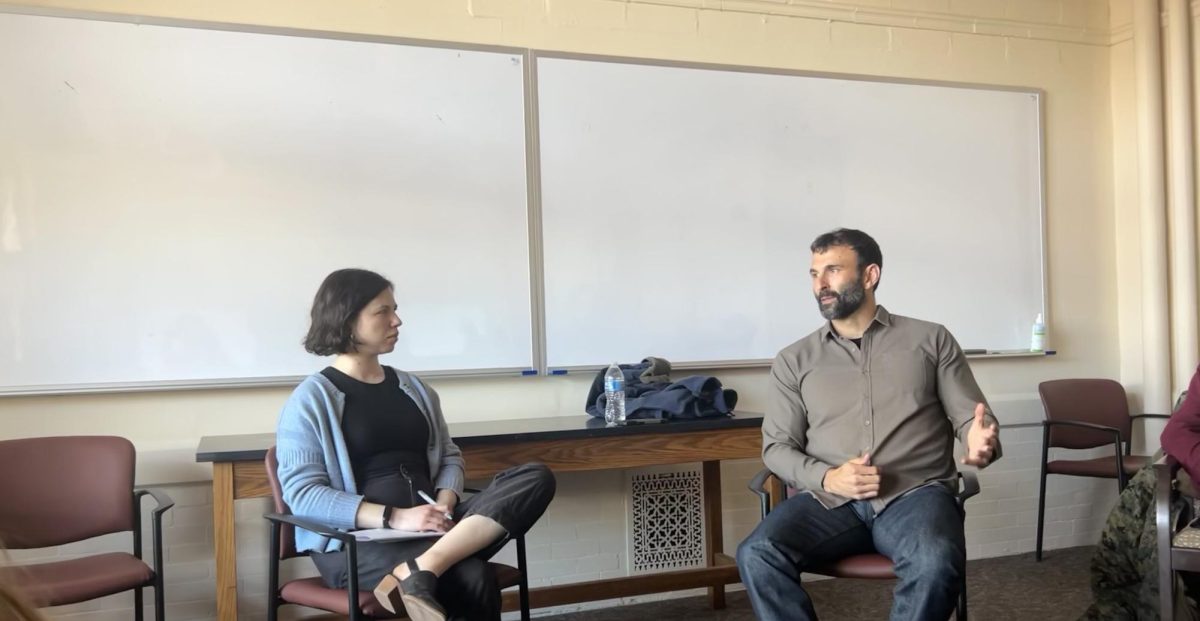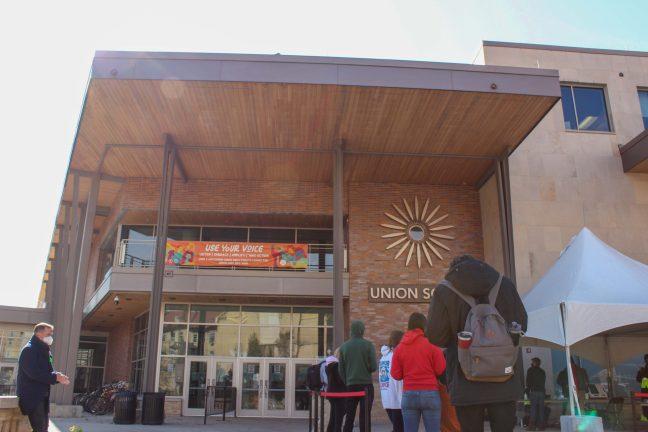A University of Toledo professor visited campus Tuesday to highlight how disability has shaped the American experience and its issues in immigration, labor laws and discrimination.
Kim Nielsen, a professor of disability studies and history at the University of Toledo, was introduced by Ellen Samuels, a University of Wisconsin faculty member in gender and women studies, English and disability studies.
Samuels described Nielsen as a distinguished scholar in the field of disability studies, whose new book, “A Disability History of the U.S.,” has high potential to become a classic in both disability studies and American history.
“It is the only book to cover the history of disability in the U.S. in anything like its entirety and to do so in an accessible manner that makes it an invaluable, much needed resource,” Samuels said.
Nielsen described disability as not just one more dilemma to put on the awareness list, but rather a “rigorous scholarship” in which lives are better understood.
“Disability is a concept and a learned experience and is omnipresent throughout U.S. history,” Nielsen said.
The field of disability studies at its core argues disability is a socially influenced construct, Nielsen said, adding that the concept of disability impacts ideas of beauty, manliness, femininity, power and other able-bodied characteristics.
She said anyone perceived to have anything categorized as a disability would never make a living, despite evidence to the contrary. She noted that women with disabilities faced further barriers to entry into the workforce.
Disabilities can also play a role in gender issues, according to Nielsen’s lecture.
Sixty cases of sexual assault on women with disabilities were recorded in just one year, Nielsen said.
Neilsen added disability can be used as an analytical tool to examine the historical expansion of democracy.
“Writing this book has taught me to take democracy much more seriously, since U.S. democracy is founded on the notion that we are capable citizens to stand on our own and speak up for ourselves,” Nielsen said.
She said studying the history of disability is beneficial because it is evident that change is possible and that actions can be “uncreated” while new ones are created.
While disabilities are variable, Neilsen said, work disincentives should not prevent an employer from hiring a potential employee with a disability.
Disability should not be confused with health, Nielsen said, and added disability relates better to the concept of able-bodiness.
“My overall point is that disability matters,” said Nielsen.
Nielsen’s visit was sponsored by the University of Wisconsin Disability Studies, the Department of Gender and Women’s Studies, the Department of History, the McBurney Disability Resource Center and the Mellon Interdisciplinary Workshop in the Humanities and the Anonymous Fund.














